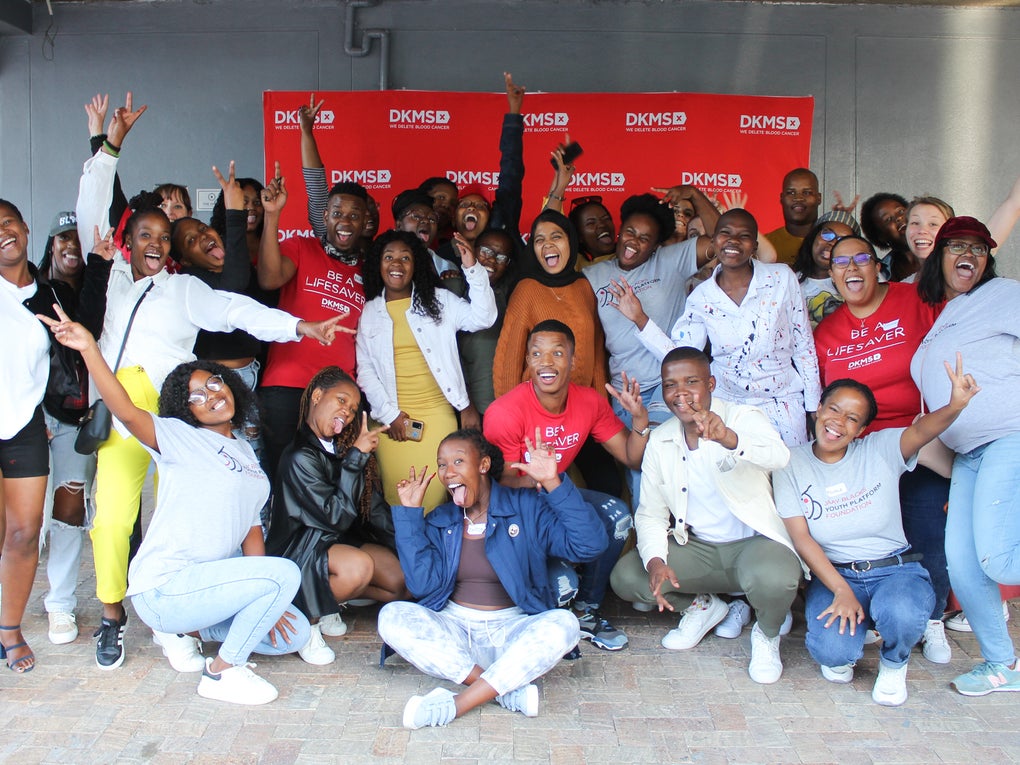
DKMS Africa: More Young Donors Needed to Save Lives
Cape Town, June 15, 2022 – Every year, between 800 and 1,000 children are diagnosed with cancer in South Africa, of which leukemia is one of the most common forms. DKMS, the global non-profit dedicated to saving the lives of patients with blood cancer and blood disorders, is appealing to young donors to step forward to donate potentially life-saving stem cells.
Head of Medical Requests at DKMS Africa, Erna West says that a stem cell transplant is often the only hope of survival for those living with blood cancer and medical research shows that younger donors are best for patients and provide the greatest chance for transplant success[i].
According to the South African Medical Journal, just over half of South African children with cancer survive, which is low compared to other countries where between 70% and 80% of children are treated successfully. “This is because there are typically more donors in these countries. The more donors, the higher the chances of a patient match. But, in South Africa, only 0,04% of people – approximately 244 000 out of a population of over 61 million - are donors,” explains West.
Barriers to building the registry
For this reason, DKMS Africa is continuously urging South Africans to register to build the registry of eligible donors. “The low number of those registered can be attributed to various reasons such as fear, stigma as well as cultural and religious beliefs, and this is why more education is needed.”
“Contrary to popular belief, donating stem cells is a completely non-invasive procedure and is safe,” she asserts. “Anyone who is in good health and between the ages of 18 and 55 is eligible to register. If you are a genetic match for a patient, the process of donating blood stem cells is similar to donating blood platelets.”
In other parts of the world, such as the United Kingdom, stem cell donation is part of the national curriculum [ii]. “I find it hugely encouraging that British high schools are teaching young people how to donate and save lives,” says West. “It is my sincere wish that African countries will soon follow in their footsteps. By dispelling the stigma and false beliefs surrounding leukemia and other blood cancers, we can improve patients’ right to a second chance at life.”
Calling all South Africans from the age of 18 and up
“Another important consideration is the need for greater ethnic diversity among our donor pool,” adds West. In order to find a suitable match, the degree of similarity between the tissue characteristics of the donor and patient need to be weighed up. “Since tissue characteristics vary according to genetics and region, DKMS Africa is doing everything possible to register as many donors of different ethnicities as possible. Having a genetically diverse database of donors is necessary to ensure that all patients have the chance to find their genetic match.”
She says the organisation has a long journey ahead to ensure that every patient has a matching donor. “Due to low representation of Black, Indian and Coloured donors on our registry, it makes it difficult for patients from these ethnic groups to make it to transplant. We urgently appeal to young people of these demographics to register, and this month we are calling all youth from the ages of 18 to sign up. Only together can we make a difference in the lives of children suffering from blood cancer.”
To register, please sign up at: https://www.dkms-africa.org/register-now. For more information, contact DKMS Africa on 0800 12 10 82.
[i] https://bethematch.org/transplant-basics/matching-patients-with-donors/why-donor-age-matters/


